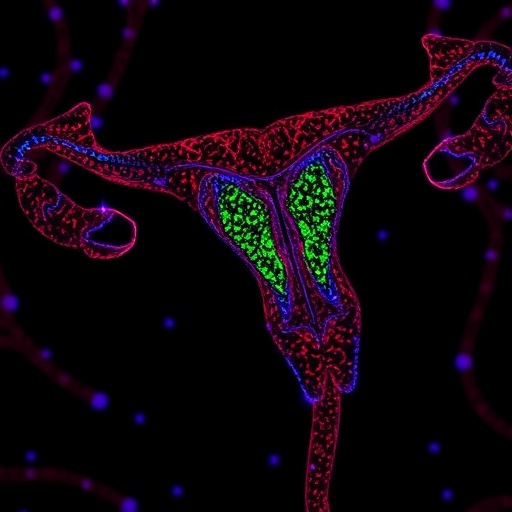PROTECT YOUR DNA WITH QUANTUM TECHNOLOGY
Orgo-Life the new way to the future Advertising by Adpathway
In an era where environmental sustainability is paramount, the focus on waste management strategies is more critical than ever. One innovative approach that has gained traction is the utilization of microbial enzymes in the composting process of agro-waste. A comprehensive review authored by Kumar, Singh, and Sahu sheds light on this burgeoning field, emphasizing the pivotal role microbial enzymes play in enhancing composting efficiency and overall waste valorization.
Composting is a natural biological process that transforms organic materials, including agricultural residues, into nutrient-rich compost. This process not only reduces the volume of waste but also recycles nutrients back into the soil, promoting sustainable agriculture. However, the efficiency of composting can vary significantly based on several factors, including the type of waste, environmental conditions, and microbial activity. It is here that microbial enzymes emerge as key players in optimizing the composting process.
Microbial enzymes are biological catalysts produced by microorganisms that accelerate biochemical reactions. During composting, these enzymes break down complex organic compounds present in agro-waste, such as cellulose, lignin, and proteins. This enzymatic action is crucial for effective decomposition, enabling the conversion of waste materials into valuable compost much faster than traditional methods. The review highlights various types of microbial enzymes, including cellulases, ligninases, and proteases, each playing a specific role in the degradation of distinct components of agro-waste.
One notable aspect of the review is its exploration of the microbial diversity found in composting systems. Different microorganisms, including bacteria and fungi, contribute uniquely to the composting process through their enzyme production. For instance, certain bacteria are particularly effective in degrading cellulose, while specific fungi excel in breaking down lignin. Understanding this microbial diversity is essential for optimizing composting conditions and enhancing the activity of beneficial microbes, ultimately leading to improved compost quality.
Furthermore, the review discusses the environmental conditions that influence microbial enzyme activity during composting. Factors such as temperature, moisture content, and aeration significantly affect the types of microorganisms that thrive in the composting environment. For instance, thermophilic bacteria flourish at higher temperatures, accelerating the breakdown of organic matter while effectively sanitizing the compost. On the other hand, a well-maintained moisture level ensures that microbial activity is sustained, promoting the production of essential enzymes.
The concept of managing these environmental variables to maximize microbial enzyme activity opens up new avenues for research and application. By fine-tuning composting conditions, it is possible to increase the rate of decomposition, thereby minimizing the time waste materials spend in the composting phase. This efficiency not only contributes to better waste management practices but also has the potential to enhance the economic viability of compost production.
Moreover, the review delves into the potential applications of enzyme-enhanced compost in agriculture. High-quality compost, enriched with microbial enzymes, can significantly improve soil health, promoting increased nutrient availability for crops. Additionally, this compost can enhance soil structure, leading to improved water retention and aeration. Farmers utilizing such compost may experience better crop yields and healthier plants, all while contributing to a reduction in synthetic fertilizer dependence.
The article also emphasizes the need for further research in this field. While the role of microbial enzymes in composting is increasingly recognized, many gaps remain in understanding the complexities of microbial interactions and enzymatic functions. Future studies could investigate the efficacy of specific enzyme combinations or explore the genetic manipulation of microbes to enhance enzyme production. Such advancements could revolutionize composting practices, making them more efficient, eco-friendly, and economically viable.
As researchers continue to unveil the intricacies of microbial enzymes in agro-waste composting, it becomes clear that the implications of their findings extend far beyond the realm of waste management. The integration of microbial enzyme technology in composting can be pivotal in addressing global issues related to food security, sustainable agriculture, and environmental degradation.
In conclusion, the comprehensive review by Kumar and colleagues offers an enlightening perspective on the integral role of microbial enzymes in agro-waste composting. It accentuates the potential for enhancing composting efficiency through microbial diversity, environmental management, and innovative research. As we strive for sustainable solutions in waste management, unlocking the secrets of microbial enzymes may well pave the way for a greener future, one compost pile at a time.
Evidently, the synergy between microbial enzymes and composting presents a promising frontier for enhancing agricultural sustainability and addressing environmental challenges. With continued research and innovation, we can harness the power of nature’s smallest players to achieve significant advances in waste management and soil health.
This burgeoning field not only highlights the functionality of microbial enzymes but also underscores the importance of holistic approaches to sustainability. By leveraging natural processes and understanding the biological intricacies involved in agro-waste composting, we move closer to achieving a circular economy where waste is minimized, and resources are optimized. The journey towards a more sustainable future is undoubtedly complex, but with ongoing exploration into microbial activities, the path ahead looks promising.
Through the lens of this groundbreaking research, it becomes evident that the intersection of science and sustainable practices can yield impactful solutions. Embracing the potential of microbial enzymes in composting can transform the way we manage waste, enriching our soils and ecosystems for generations to come.
As the world grapples with increasing waste production and environmental challenges, the insights provided by this review serve as a reminder that innovative scientific investigations hold the key to sustainable progress. By championing microbial enzymes, we can take tangible steps towards a more responsible and eco-conscious society, fostering a resilient relationship between agriculture and the environment.
In summary, the revelations brought forth by Kumar, Singh, and Sahu illuminate a critical aspect of agro-waste management that merits attention and action. Through harnessing the power of nature’s microbial workforce, we can revolutionize composting methods, boost agricultural productivity, and contribute to a healthier planet.
With the promise of microbial enzymes shining brightly on the horizon, it is imperative that stakeholders across agriculture, waste management, and environmental science embrace this knowledge. In doing so, we can collectively work towards a future where waste is not simply discarded but transformed into valuable resources, enriching both our soils and our sustainability efforts.
The potential for microbial enzymes to elevate composting practices to new heights is not merely a scientific possibility; it is a compelling call to action for all who are part of the sustainable agriculture community. Let us embrace the science, champion the cause, and pave the way for a greener, more sustainable tomorrow.
Subject of Research: The role of microbial enzymes in agro-waste composting.
Article Title: Role of Microbial Enzymes in Agro-waste Composting: A Comprehensive Review.
Article References:
Kumar, V., Singh, V.S., Sahu, P.K. et al. Role of Microbial Enzymes in Agro-waste Composting: A Comprehensive Review.
Waste Biomass Valor (2025). https://doi.org/10.1007/s12649-025-03286-0
Image Credits: AI Generated
DOI: 10.1007/s12649-025-03286-0
Keywords: microbial enzymes, agro-waste, composting, sustainability, waste management, soil health, agricultural productivity.
Tags: agro-waste management strategiesbenefits of composting agricultural residuesbiological catalysts in waste valorizationcomposting process optimizationenhancing composting efficiencyenvironmental sustainability in agricultureenzymatic activity in waste decompositioninnovative waste management solutionsmicrobial enzymes in compostingnutrient recycling through compostrole of microorganisms in compostingsustainable agriculture practices


 6 hours ago
6
6 hours ago
6





















 English (US) ·
English (US) ·  French (CA) ·
French (CA) ·